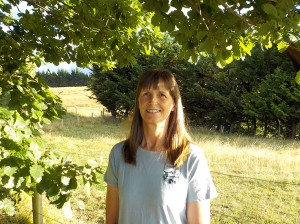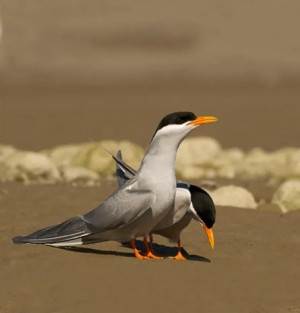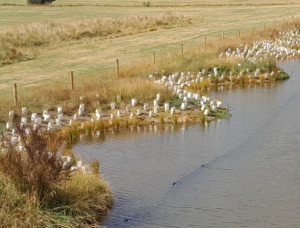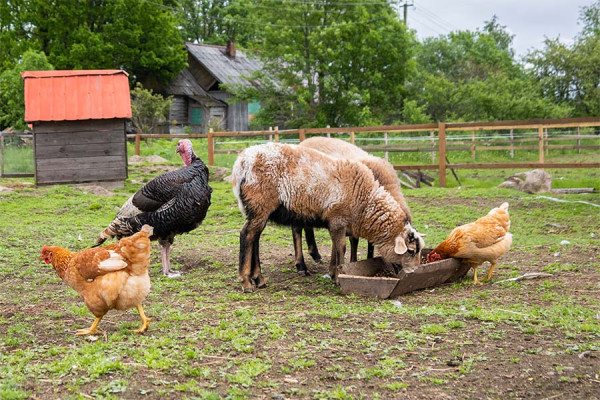Waimakariri Water Zone Committee progress report
Each of Waitaha/Canterbury’s water zone committees has an action plan which outlines how they will work with the community to deliver their aspirations for freshwater as outlined in the Canterbury Water Management Strategy (CWMS). Committees report annually, to let the CWMS partners and community know how things are tracking.
2022/23 Progress report
From the chair: Focusing on our direction of travel

Carolyn Latham, Waimakariri Water Zone Committee chair
2022/23 has been a successful year for the committee, with a suite of good Action Plan budget projects supported in the second year of utilising this budget.
The committee continued to consolidate relationships with key organisations in the zone, including the Waimakariri Biodiversity Trust and the Waimakariri Landcare Trust. The committee has also initiated the inaugural environmental awards for 2023 which featured as part of the Waimakariri District Council Community Awards ceremony, held in October.
Our zone has a significant number of lifestyle blocks, and the committee worked with other experts to develop a resource which provides the top ten tips that would make the most difference to the environment if widely adopted by lifestylers. This is also supported by a new Lifestyle Block Hub on Environment Canterbury’s website.
We were delighted to welcome Ruby Gill-Clifford as the committee’s first Youth Representative. Since first joining us in late 2022, Ruby has impressed with her maturity and passion, built off her tertiary focus on Environmental Science, Biochemistry, Māori, and Indigenous studies.
This year was also a time of great loss for the committee and the Waimakariri community with the passing of former Zone Committee members Michael Blackwell and Clare Williams. Both Michael and Clare were hugely respected for their thoughtful guidance and passion for the environment and community, which will continue to influence the committee into the future.
Committee's key achievements for 2022/23
- Utilising our available CWMS Action Plan budget for 2022/23 ($50,000) across four projects that align well with our Action Plan.
- Continuing support for the work of leading groups in our zone such as the Ashley Rakahuri Rivercare Group, the Waimakariri Landcare Trust, and the Waimakariri Biodiversity Trust.
- The committee’s Biodiversity Working Group initiated the inaugural Waimakariri Environmental Awards, which were successfully incorporated into the Waimakariri District Council Community Awards in October 2023.
- Seeing the Rangiora Reach consultation completed, and Masterplan developed for this section of the Ashely Rakahuri River.
- The committee’s Lifestyle Block Working Group developed a 'Top Ten Tips for Lifestylers' brochure as a simple information resource on environmental improvements aimed at the more than 6,500 small block owners in the district. There is now interest in using this brochure in other zones.
- A permanent webpage providing ongoing information for lifestyle block owners has also been developed.
Delivering the community's vision for freshwater
The Canterbury Water Management Strategy (CWMS) puts some responsibility for finding solutions for freshwater management in the hands of the community, with support from councils, Ngāi Tahu, and others. The strategy sets out freshwater goals and targets to deliver the community’s vision for freshwater.
Each of the community-led water zone committees work collaboratively to develop freshwater recommendations for councils to help ensure plans give effect to these goals and targets.
Within each target area, there are several specific time-bound targets to be achieved and these are monitored and reported on to ensure progress is being made.
The CWMS targets are: Environmental limits, Ecosystem health and biodiversity, Natural character of braided rivers, Kaitiakitanga, Drinking water, Recreational and amenity opportunities, Water use efficiency, Irrigated land area, Energy security and efficiency and Indicators of regional and national economies.
Local projects helping to deliver on the CWMS targets
Read some of the stories about what is being done in the zone to deliver on the CWMS targets.
Working with key partners
The Waimakariri Biodiversity Trust (WBT) was established in 2021, after it was identified by the Zone Committee’s Biodiversity Working Group that there was an appetite for an independent community-based Trust to work collaboratively to protect, restore and develop native biodiversity in the zone. The founding trustees were appointed last year, and the Trust was incorporated as a Charitable Trust earlier this year.
The WBT received Action Plan budget support in 2022/23 to host a visioning workshop and to assist with the employment of a coordinator to support locals wanting to restore areas of native biodiversity on their land.
The WBT is aiming for a collaborative approach where locals work together to restore and enhance biodiversity so that we can protect and develop our local indigenous ecosystems. It is also working alongside community groups, such as the Sefton Saltwater Creek Catchment Group, and has hosted informative seminars in different parts of the zone.
Waimakariri Landcare Trust and Waimakariri District Council are also supporting the WBT’s establishment, with the District Council also supporting the employment of a coordinator to get the trust up and running.
The CWMS targets are: Ecosystem health and biodiversity, Natural character of braided rivers and Recreational and amenity opportunities.
Action Plan budget project

Black-fronted tern/tarapirohe. The population is small and declining, with just 5000-10,000 remaining
Managed by the Ashley Rakahuri Rivercare Group (ARRG), this monitoring programme received $5,000 from the CWMS Waimakariri Action Plan budget to monitor the breeding of shorebirds around the Ashley Rakahuri/Saltwater Creek estuary – their species, nest locations, and breeding outcomes.
This monitoring focused on banded dotterel/tūturiwhatu, pied stilt/poaka, black-fronted tern/tarapirohe, white-fronted tern/tara, South Island pied oystercatcher/tōrea, black-billed gull/tarāpuka and black-backed gull/karoro in the Saltwater Creek and Ashley Rakahuri River estuary from August 2022 to February 2023.
A report on findings was compiled and presented to the committee in March 2023. A key finding from this first year of monitoring around the estuary is that reducing human disturbance around the estuary is a difficult issue, given the recreational value of the area. However, gathering qualitative information on the risks to the birds and the frequency of large-scale events could help bolster the case for greater protection of this important bird habitat.
The CWMS targets are: Ecosystem health and biodiversity, Natural character of braided rivers and Recreational and amenity opportunities.
Ground work in the zone

After completion of native planting and installation of a fence in February 2023
This project was supported through the CWMS Waimakariri Action Plan budget in 2021/22 ($8,560) and sought to restore īnanga spawning habitat, increase mahinga kai values, and reduce sediment and control erosion in Taranaki Stream near Ashley-Rakahuri Estuary. The total project cost nearly $23,000, with additional funding from Waimakariri District Council, and Environment Canterbury’s Fish Habitat Fund.
The project focused on 105 metres of Taranaki Stream, requiring regrading and planting to restore the area and allow native fish species to thrive. Six bays were created with earthwork on the True Right bank of the Taranaki Stream, just upstream of the floodgate at Waikuku Beach. These bays have a reduced slope, to increase the area of flooded vegetation available for īnanga spawning. Funding from the Waimakariri Water Zone Committee was granted for the planting of 800 native grasses and low shrubs, and a fence was installed to prevent stock grazing on the native planting.
The CWMS targets are: Ecosystem health and biodiversity, Natural character of braided rivers, Kaitiakitanga and Recreational and amenity opportunities.
Future challenges and opportunities – 2023/24
The committee has maintained momentum heading into the 2023/24 year and has focused on broadening its networks within the community through the promotion of the inaugural Environmental Awards hosted as part of the Waimakariri District Council’s Community Service Awards ceremony in October 2023. This initiative has been very well received and the committee’s Biodiversity Working Group will look to continue these Environmental Awards for the Waimakariri district in 2024/25.
The committee has also promoted the CWMS Action Plan budget for 2023/24 which has expanded the range of projects and initiatives the committee can look to support through the implementation of the CWMS. This approach builds on the existing initiatives underway in our zone, such as Waimakariri Landcare Trust’s water monitoring gap analysis, and efforts to protect and enhance biodiversity values in the zone by the Ashley-Rakahuri Rivercare Group and the Waimakariri Biodiversity Trust.
Following on from the extensive community engagement for the Waimakariri ZIP Addendum (2016-2019), the committee is keen to support stakeholder engagement for the Our Future Canterbury planning process being undertaken by Environment Canterbury in 2023/24.
The committee also intends to continue to raise public awareness and education on freshwater management, including promotion of the Top Ten Tips for Lifestyle Blocks brochure that was developed in 2022/23.
Find out more
- Learn more about the Waimakariri Water Zone Committee.
- See the Waimakariri Water Zone Committee Action Plan 2021-2024.
- Download the Waimakariri Water Zone Implementation Programme (PDF file, 8.05MB).

